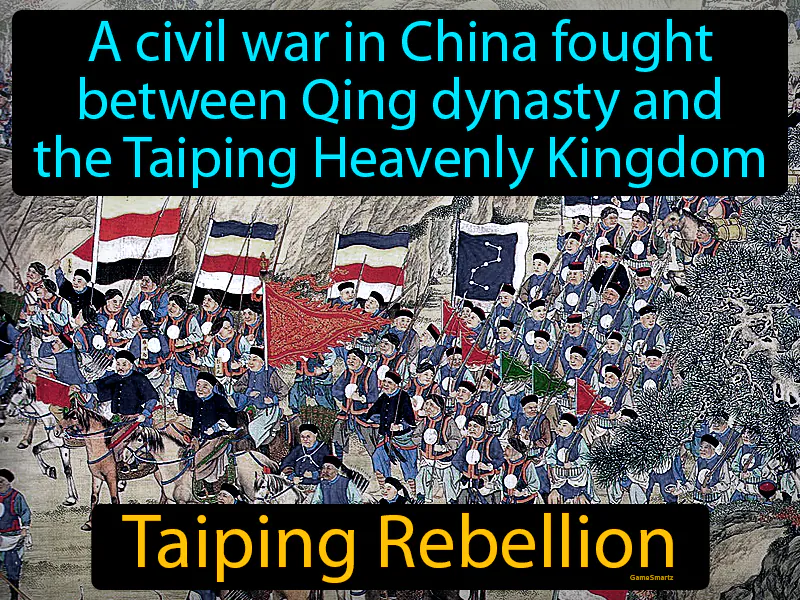Taiping Rebellion

The Taiping Rebellion, which took place from 1850 to 1864, was a significant event during the era of New Imperialism because it challenged the Qing dynasty's control and highlighted the internal weaknesses of China. It underscored tensions between traditional Chinese beliefs and Western religious ideas, as the rebellion was partly inspired by Christian teachings. This clash of cultures is still relevant today as globalization continues to blend different traditions and beliefs. For example, people today might experience similar cultural exchanges in their daily lives through international cuisine, music, or technology. Understanding these historical tensions helps us appreciate the importance of respecting diverse perspectives and finding harmony in a multicultural world.
Practice Version

Taiping Rebellion: A civil war in China fought between Qing dynasty and the Taiping Heavenly Kingdom. Taiping Rebellion. It was a massive and deadly uprising from 1850 to 1864, led by Hong Xiuquan, aiming to establish a new kingdom based on his version of Christianity.